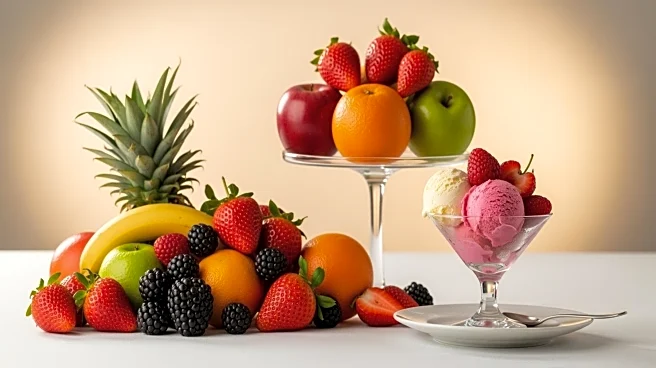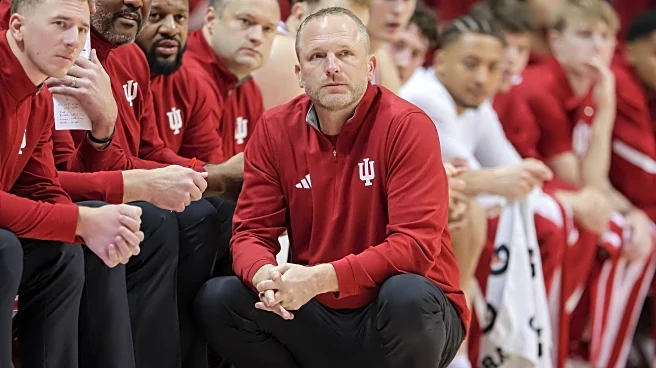What's Happening?
Unilever has released its third-quarter results for 2025, showing a turnover of €14.7 billion, a decrease of 3.5% primarily due to exchange rate effects and the sale of certain businesses. Despite the decline,
Unilever's food brands, including Hellmann’s and Knorr, demonstrated resilience with steady global performance. Food sales grew by 3.4%, driven by price and volume increases. The company is preparing to spin off its ice cream business by the end of the year, which currently accounts for 16% of its revenue. Ice cream sales grew by 3.7% in Q3, with brands like Cornetto and Ben & Jerry’s showing positive growth.
Why It's Important?
The results highlight Unilever's strategic shift towards focusing on beauty and personal care, which saw double-digit growth. The planned spin-off of the ice cream business indicates a significant restructuring of Unilever's portfolio, potentially affecting its revenue distribution. The steady performance of food brands suggests that despite the shift, food remains a vital part of Unilever's business. The company's ability to maintain growth in challenging markets like Asia Pacific and Africa underscores its strong brand positioning.
What's Next?
Unilever's ice cream business is set to be demerged, with the official spin-off date postponed due to the US federal government shutdown. The company will retain a minority stake in the new entity, The Magnum Ice Cream Company. As Unilever continues to reshape its portfolio, stakeholders will be watching how the company balances its focus on beauty and personal care with its traditional food brands.
Beyond the Headlines
The shift in Unilever's portfolio reflects broader industry trends towards premium and digitally native brands. The company's strategic disposals and acquisitions indicate a focus on high-margin segments, which could lead to long-term profitability. The resilience of food brands like Hellmann’s and Knorr suggests that traditional consumer goods still hold significant value in the market.











